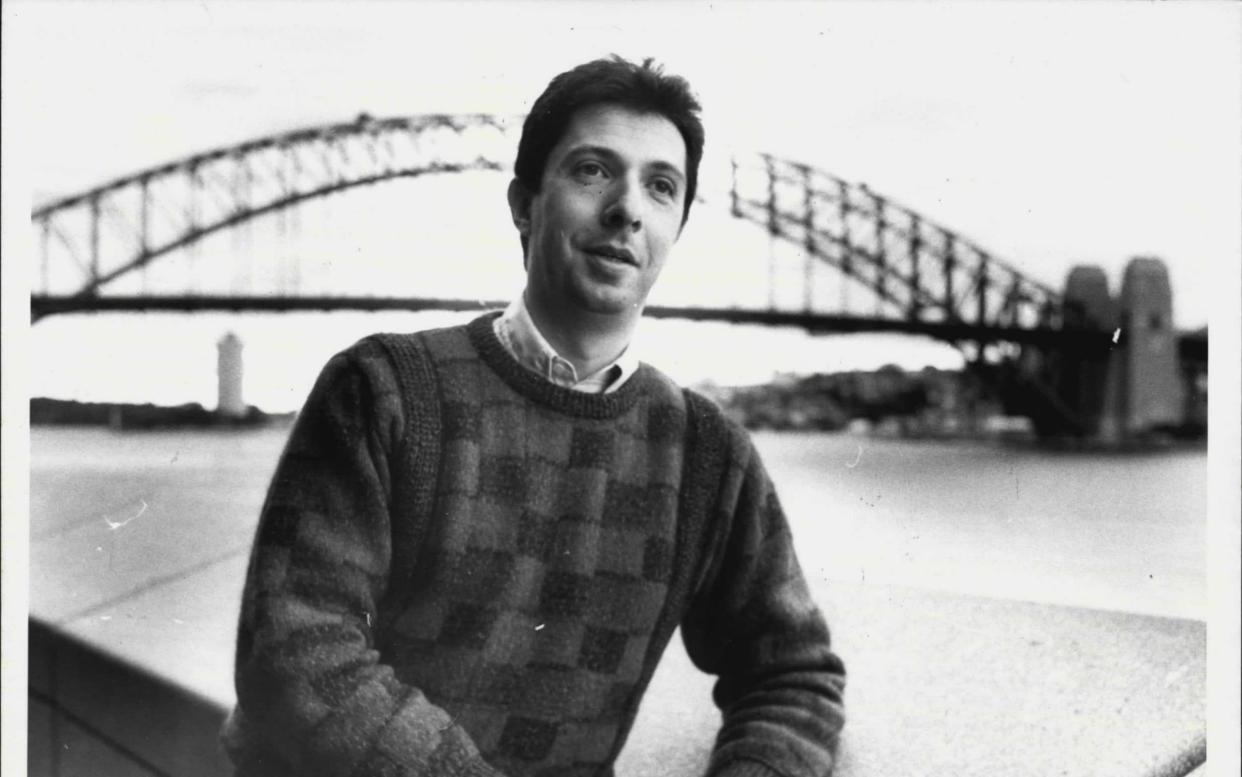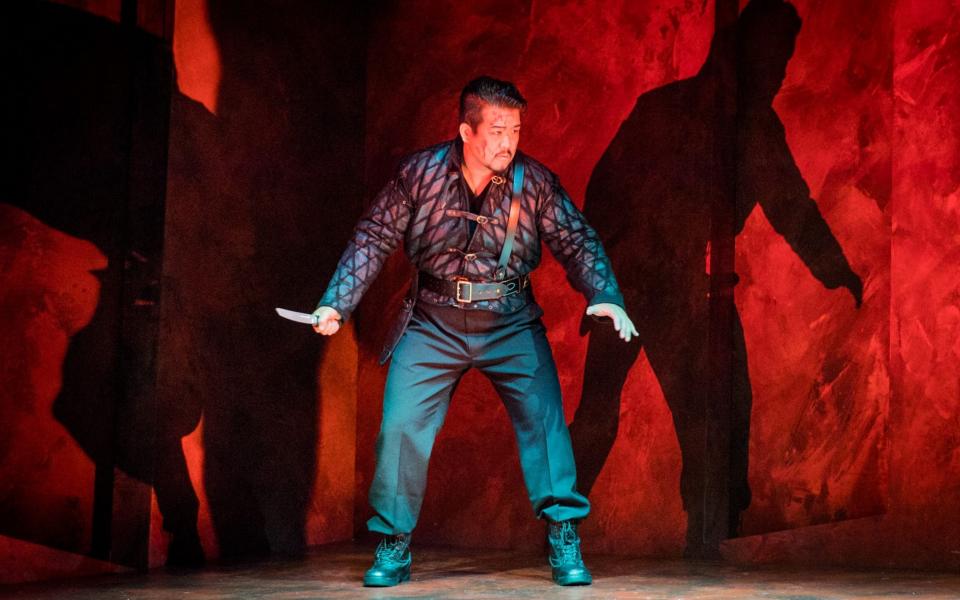Elijah Moshinsky, refugee who became a celebrated opera and theatre director – obituary

Eliajah Moshinsky, who has died from Covid-19 aged 75, was an opera, theatre and television director known for the intensity of his stagings, notably at the Royal Opera, Covent Garden, where he worked with singers such as Plácido Domingo in Otello, Jon Vickers (Samson et Dalila) and Dmitri Hvorostovsky (Il trovatore).
While making his name with a stripped-back 1975 staging of Britten’s Peter Grimes that was described as “Brechtian”, he could not be pigeonholed as a minimalist director, soon learning to spend big budgets with the rest of them. The works he tackled ranged from Wagner’s Tannhäuser to Gilbert and Sullivan’s The Pirates of Penzance, a joint production for English National Opera and Chicago Lyric Opera that was a box-office success despite not finding favour with the critics.

He had a particular passion for Verdi’s operas, invariably maintaining their historical realism. Indeed, for a time he seemed to be Covent Garden’s resident Verdi director, producing notable stagings of Attila with Ruggero Raimondi, Simon Boccanegra with Kiri Te Kanawa and a 1993 Stiffelio with José Carreras that so impressed the controller of BBC One on opening night that the schedules were cleared for a live broadcast the following Saturday.

Moshinsky’s success lay in the way he demanded everything from his singers, driving them to both excellence and despair while still allowing them to have their voice. Others also experienced his fiery nature. After one especially taxing rehearsal in Sydney he told an interviewer that the orchestra’s musical standards had been appalling, but when his comments were published he had to place a written apology on every music stand.
On another occasion he got drawn into a row in Opera magazine about the interpretation of Verdi’s operas, drawing criticism for his objection to experimental productions with angled stages, beds hanging from walls and bare electric lights. “I expected them to call me a fuddy-duddy,” he recalled. “But I was shocked and really upset when critics said I was no good at my job.” Nevertheless, the ensuing publicity did his career no harm.

Elijah Moshinsky was born in the French quarter of Shanghai on January 8 1946, the youngest of three sons of Abraham Moshinsky, who had studied law in California, and his wife Eve (née Krasavitsky); they were Jewish immigrants who had fled from pogroms in Vladivostock. At the age of five he watched with his father as Chairman Mao entered the city. With the Communist takeover the family fled once more, ending up in Melbourne, Australia, where he was educated at Ormond College before reading history and law at the University of Melbourne.
Although Moshinsky had a passion for the arts – playing the flute, enjoying photography and participating in local theatre groups – he seemed destined for academia. After a spell as a tutor at Monash University he moved in 1973 to St Antony’s College, Oxford, to study for a doctorate in the Russian liberalism of Alexander Herzen under the supervision of Sir Isaiah Berlin.
While there he directed a student production of Shakespeare’s As You Like It that was seen by John Tooley, director of the Royal Opera, who persuaded him to abandon his studies and join Covent Garden. His duties as a staff producer included rehearsing revivals of old productions, notably Tannhäuser.
He had been there only a few months when the sets from the original production of Peter Grimes were found to have vanished from a store in Oxfordshire. A new staging was urgently required and Moshinsky stepped forward with a low-cost version that may not have pleased the composer, but which was a critical success. It was later taken to La Scala, Milan, and was still being revived 20 years later.
His first venture into London theatre, Thomas Bernhard’s comedy The Force of Habit at the Lyttleton, was not a success and closed after six performances. He retreated into opera, winning Society of West End Theatre awards for Lohengrin (1978) and The Rake’s Progress (1979), making his debut at the Metropolitan Opera, New York, in 1980 with Verdi’s Un Ballo in Maschera starring Pavarotti, and directing several productions for Opera Australia. Meanwhile, Jonathan Miller brought him into television to direct a Shakespeare series, including Cymbeline with Helen Mirren, for which he drew on his love of Renaissance paintings.
It was not until 1987 that Moshinsky truly re-established himself in the theatre with a production of Chekhov’s Three Sisters for Greenwich Theatre that transferred to the West End. In 1995 he directed Lord of the Flies at in Stratford-upon-Avon with 33 boys aged between 11 and 15, recalling with some alarm how they took naturally to the play’s subject matter, and in 1999 he directed Robert Lindsay in Richard III for the Royal Shakespeare Company.

Although revivals of his stagings remained staples of British and American opera houses, reliably refilling their coffers, by the new century he had become unfashionable in British operatic circles. Undaunted, he found work at smaller opera houses, returning to pared-back Britten with The Turn of the Screw for Broomhill Opera at Wilton’s Music Hall and directing a trilogy of early Verdi operas at Buxton Festival.
Moshinsky, who had close-cropped dark hair, deep brown eyes and walked with a slight stoop, had little time for those who consider opera to be an outdated art form. “It’s like saying the writing of novels is over,” he told the Guardian in 2015. “New people come along with new ideas … Opera will change, it won’t be the same art form we had 30 years ago, but I don’t fear for its future.”
In 1970 he married Ruth Dyttman, an actress-turned-lawyer. She survives him with their two sons, Benjamin and Jonathan.
Elijah Moshinsky, born January 8 1946, died January 14 2021

 Yahoo News
Yahoo News 
